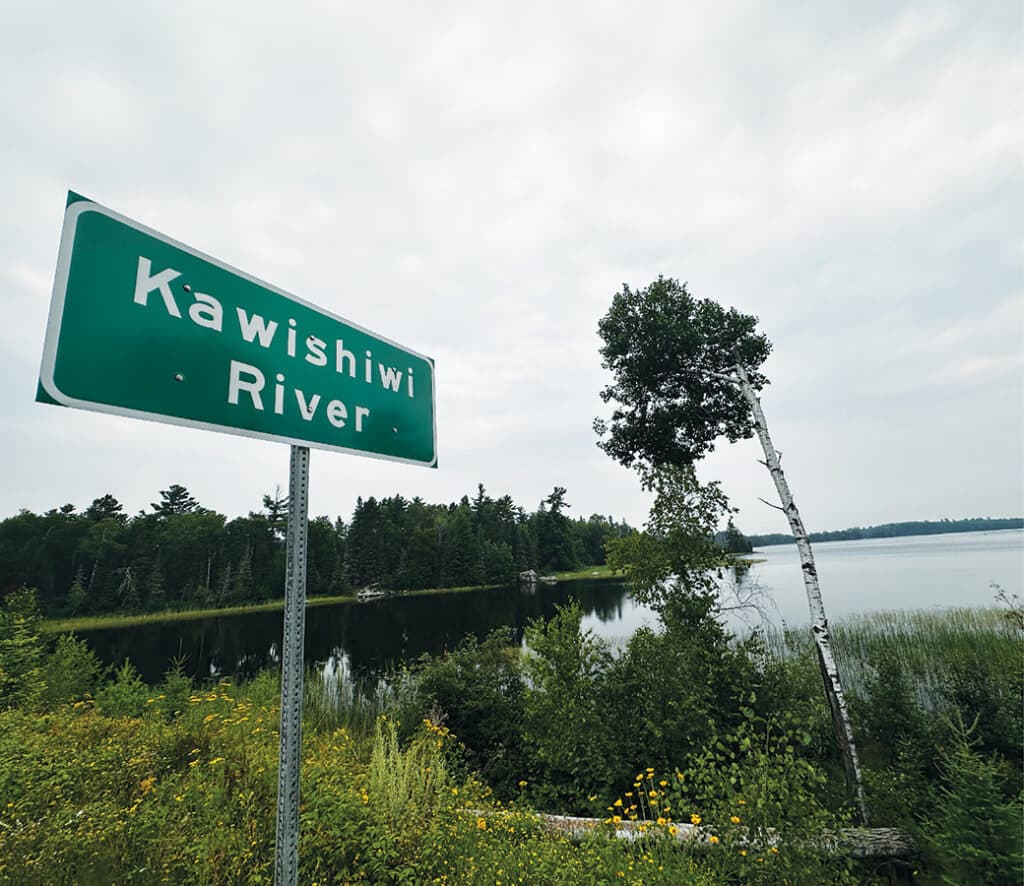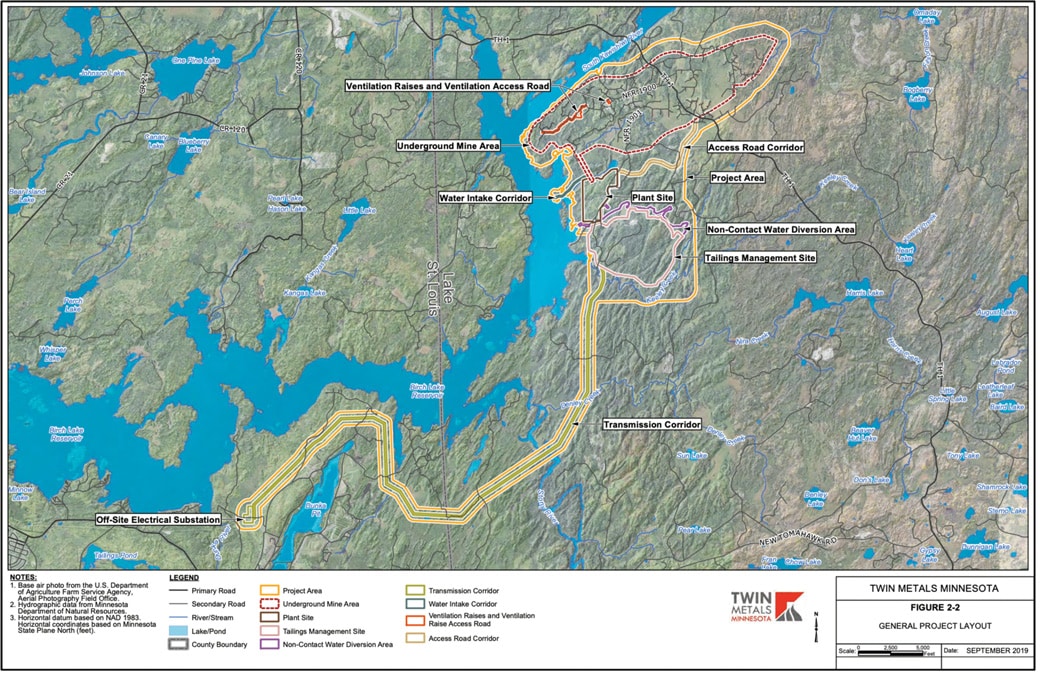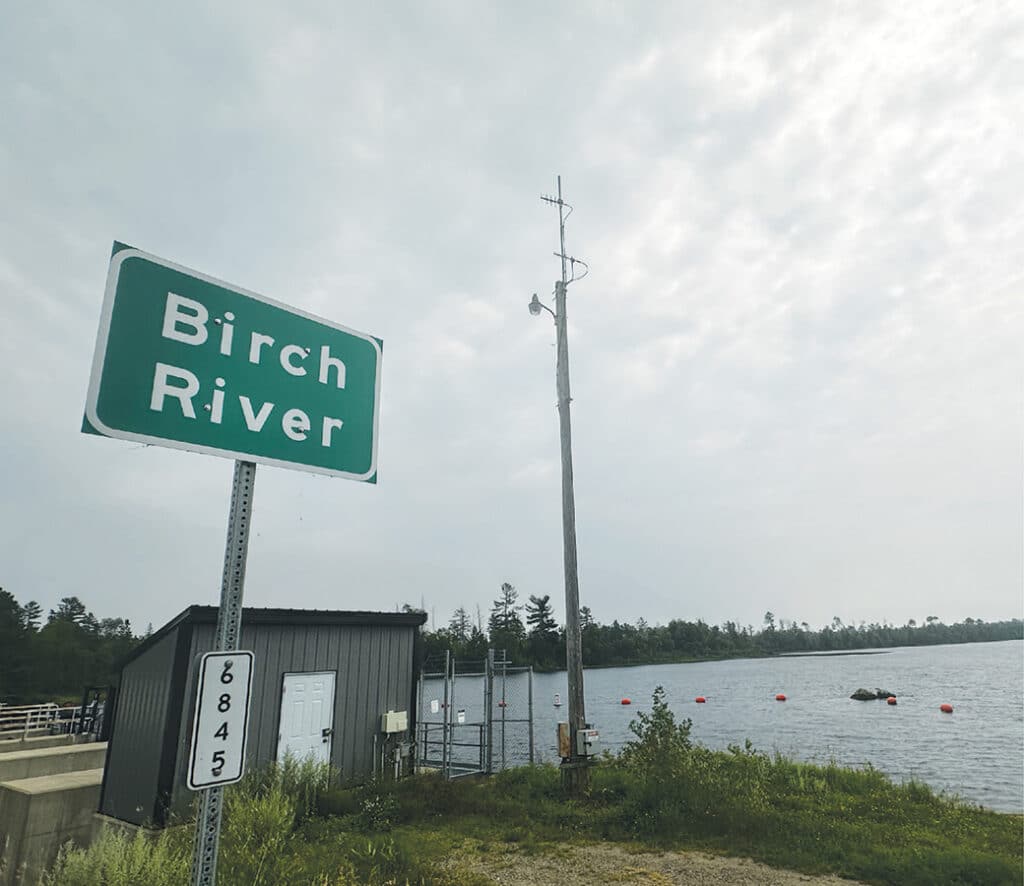
Legislation introduced in Congress would reinstate Twin Metals Minnesota’s federal mineral leases and reverse the 20-year mining moratorium near the Boundary Waters Canoe Area Wilderness (BWCAW). The bill, sponsored by Rep. Pete Stauber, would weaken environmental review and limit public and judicial oversight. If passed, it would pave the way for Twin Metals to move forward with its proposed copper-nickel sulfide mine just miles from the BWCAW. Opponents argue the project threatens the long-term health of the wilderness and the Rainy River watershed.
Groundwork laid for reversal
Twin Metals Minnesota has pursued the reinstatement of two mineral leases for nearly a decade. The company aims to construct a copper-nickel sulfide mining complex adjacent to Birch Lake. The site is located roughly five miles from the BWCAW and nine miles southeast of Ely. Copper-nickel is used in industries that produce electric vehicles, clean energy technology, and other electronics. Lawmakers, environmental groups, and communities continue battling the issue on both sides.
In 2023, the Biden administration withdrew 225,000 acres of federal land in the Superior National Forest. Lawmakers now aim to override that 20-year ban and reopen those 225,000 acres to mineral leasing.
Rep. Pete Stauber (R‑MN‑8) reintroduced the Superior National Forest Restoration Act (H.R. 978) earlier this year. Since then, there has been a federal debate over reinstating mineral leases for Twin Metals Minnesota. More recently, Deputy Secretary of the Interior Kate MacGregor issued a memorandum reinstating a 2017 legal opinion that reinforced the groundwork for renewing leases for Twin Metals, a subsidiary of the Chilean mining company Antofagasta.
In a recent post on X (formerly Twitter), MacGregor wrote, “We are withdrawing the Biden administration’s misinterpretation of the law that was used to cancel leases at the Twin Metals mine. This important first step will unlock significant quantities of important platinum-group metals vital to meeting Energy Dominance goals of POTUS.”
Additionally, the House appropriations bill includes a provision that blocks the use of federal funds to enforce the 20-year mining ban enacted by the Biden administration.
Proposed policy changes related to the Department of the Interior’s (DOI) budget go further by aiming to nullify the 20-year mining ban and restore the 2019 mineral leases. They also include provisions designed to limit or prevent lawsuits that could delay or block mining activities.



Opponents say mining will pollute wilderness
However, opponents and environmental groups like Friends of the Boundary Waters pledge to continue fighting for permanent protection. In a recent Facebook post, the group stated, “Without public notice or hearing, they [the federal government] quietly handed over your public lands to the Chilean-owned mining conglomerate Antofagasta. The American people were kept in the dark and barred from participating in this decision that could permanently pollute the Boundary Waters.”
Concerned communities downstream from the proposed mine continue to raise an alarm. “Minnesotans care about each other and our home,” said Margaret Levin, State Director for the Sierra Club’s North Star Chapter. “We must protect the Boundary Waters, and we will continue to fight alongside northern Minnesota’s downstream communities, tribal leaders, businesses, and concerned residents against the threat of toxic sulfide mining throughout the region.”
During the Biden administration, Principal Deputy Solicitor Ann Marie Bledsoe Downes published her rationale in 2022 for not reinstating the Twin Metals leases. She argued that the lease terms had been altered specifically to benefit Twin Metals. She also communicated that the administration had bypassed the Forest Service’s authority and its objections to the lease renewals.

Mineral permits would still need state approval
The battle continues at the government level. In June 2025, Congress removed language reinstating the mineral leases from a major budget bill. The following day, officials in the Trump administration announced plans to reinstate the leases using executive authority. However, the U.S. Forest Service still must approve mining plans, and Congress could influence the process through further legislation.
Stauber told Duluth News Tribune, “I have maintained that all options are on the table to restore key leases and reverse the Biden administration’s harmful, politically motivated, and illegal mineral withdrawal in the Superior National Forest.” He added, “I will pursue every avenue available to get this done quickly and decisively.”
Even if federal leases are reinstated, Twin Metals must obtain multiple permits from the Minnesota state government before mining can begin. Specifically, the Minnesota Department of Natural Resources and the Minnesota Pollution Control Agency are responsible for conducting environmental reviews and enforcing mining regulations.
The relevant bill remains under debate in Congress. If it passes the House and Senate, it will be sent to the President, who has signaled support for reinstating the mineral leases in Minnesota.



More info:
- H.R.4754 – Department of the Interior, Environment, and Related Agencies Appropriations Act, 2026
- Reinstatement of Solicitor Opinion M-37049 – The Deputy Secretary of the Interior
- Authority to Cancel Improperly Renewed Twin Metals Mineral Leases and Withdrawal of M-3704 – U.S. Department of the Interior, Office of Solicitor
- Bill would reinstate Twin Metals’ mineral leases, stifle withdrawal enforcement – Duluth News Tribune
- Trump administration says it will move to allow mining near Boundary Waters, after Congress pulls back – MPR News

